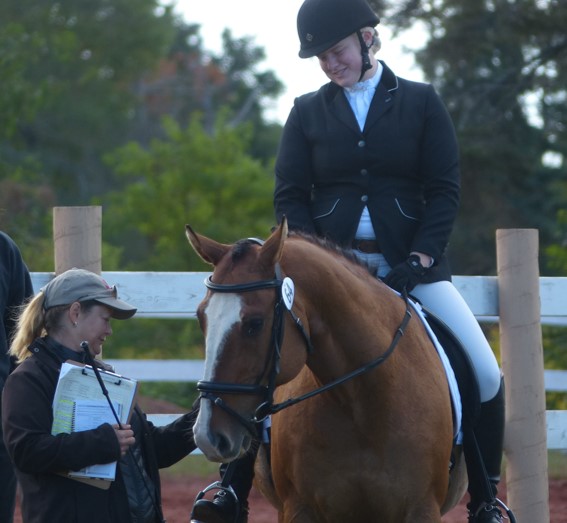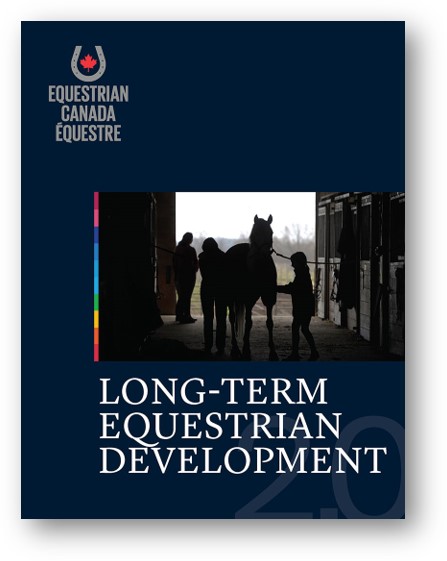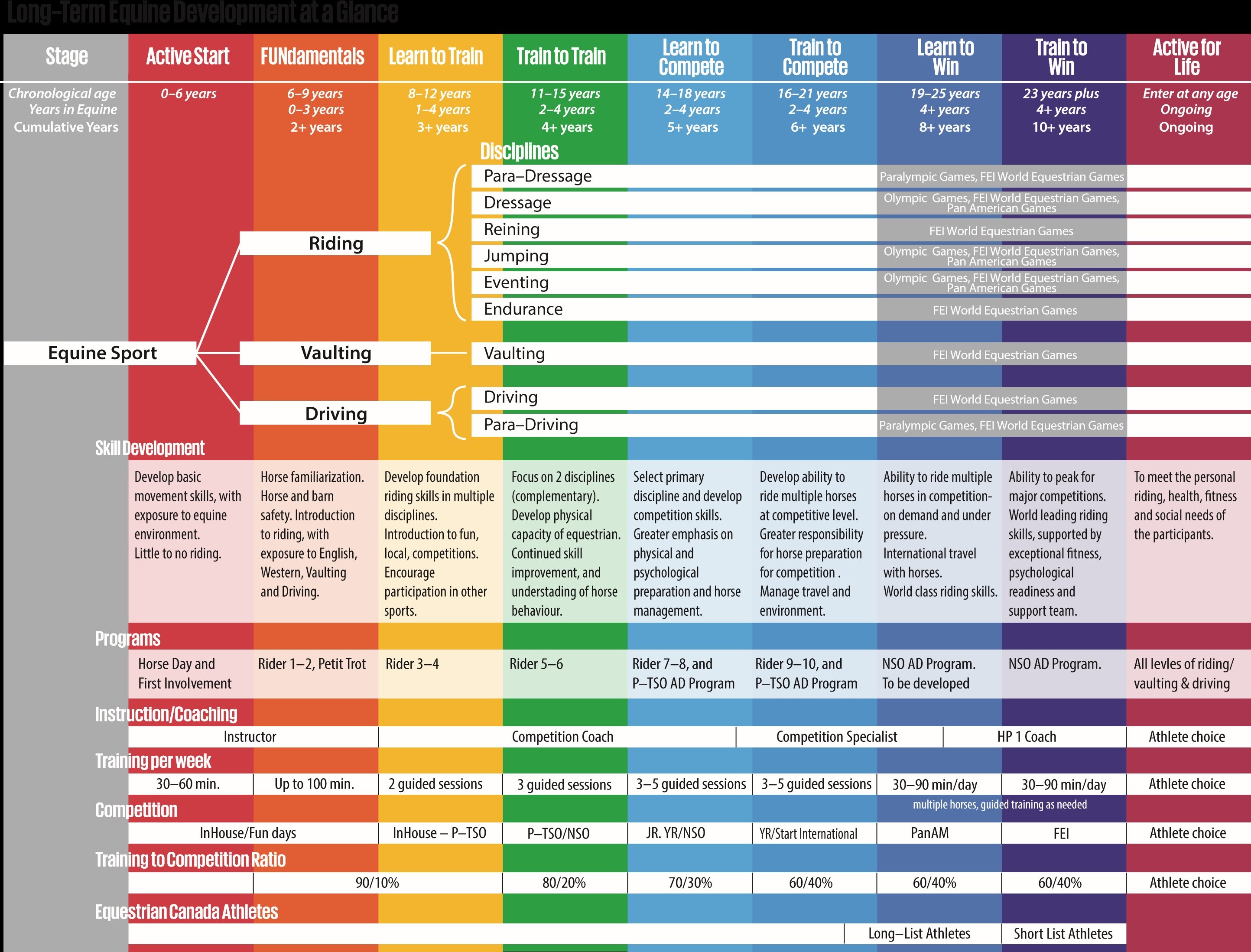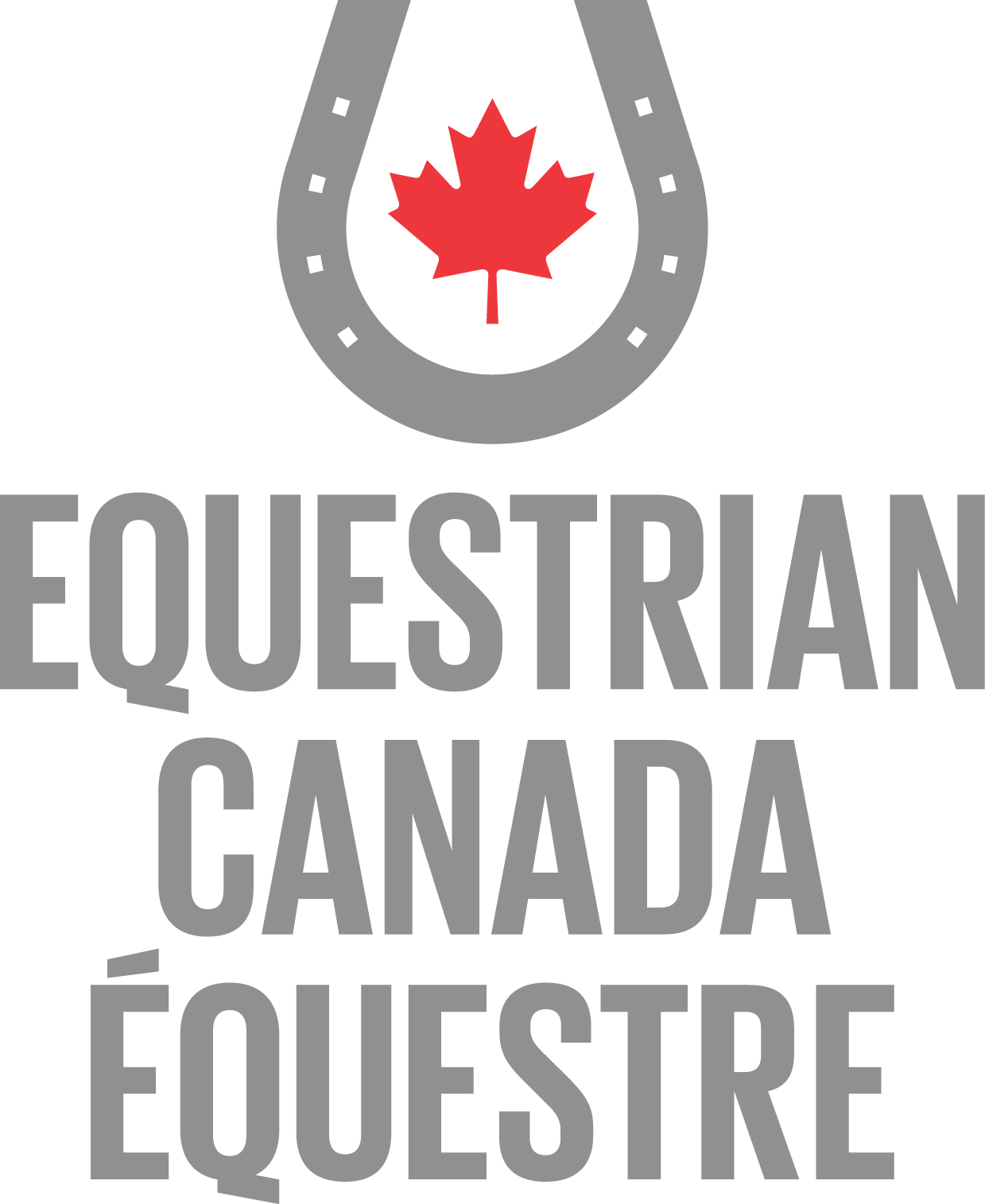
|
“Long Term Equestrian Development”. Sounds fancy. But what does it have to do with you?A lot! Please read on!Every person who picks up a pair of reins has taken their first step along the equestrian Pathway. This Pathway details the progression of a rider from their very first experience all the way to the Olympic podium. Each rider decides how far along the pathway they’ll travel, but the journey has been mapped out to ensure safe and successful learning.One of the components of the Pathway is the Long Term Equestrian Development program. Started nationwide in 2007, this program takes riders from their current lesson program and guides them through a set of specialized lessons, training sessions, and off-horse seminars, taking them further along the Pathway and into a Team competition experience.In years past, the NBEA’s Long Term Equestrian Development (LTED) program has focused on riders new to the disciplines, on riders new to competition, and on coach development. These addressed the Learn to Train, Train to Train, and Learn to Compete stages.
|
Equestran Canada's LTED Document
Click to see where you are on the Equestrian Pathway. |
|
Dressage LTED 2025 Applications are closed; program is full for 2025AUDITOR Information & Registration |
|
|
Eventing LTED 2025 Applications are closed; program is full for 2025 |
|
|
Jumper LTED 2025 Applications are closed; program is full for 2025
|
|
First Show Funding
Another focus of the LTED program is to serve as a bridge between new competitors and sanctioned competitions, to help riders get started competing in Bronze or Gold Equestrian Canada-sanctioned shows.To this end, the NBEA is offering First Show Funding. Any rider, of any age, who will be competing in his/her first-ever sanctioned competition can have 100% of show fees, including class fees, admin and drug fees, even stabling, paid for by the NBEA. A free show or event! Head to our So You Want to Compete web page for more details on the program and a registration form. |
|
Travel FundingHelping riders to experience the larger competition world has always been an NBEA goal and LTED initiative. In the past, that has meant support for teams representing New Brunswick at Atlantic Coast Games and Canadian INterprovincial Equestrian Championships. With the demise of those competitions, the NBEA supports individual riders who compete in New Brunswick, but who are also taking it upon themselves to venture beyond the Maritimes to compete in large sanctioned competitions in Quebec and Ontario. Funding is dependant upon the number of applicants in a given year and the amount of travel and expense incurred. Deadline to apply for funding is October 1st.
Out-of-Maritimes Travel Funding Application Form - EC sanctioned Out-of-Maritimes Travel Funding Application Form - non- EC (AQHA, APHA, etc.) |
|
|
Rider Fitness Get ready for the competition season: ► Equestrian Fitness Plan► Equestrian Fitness Video Series |
|










.png)
